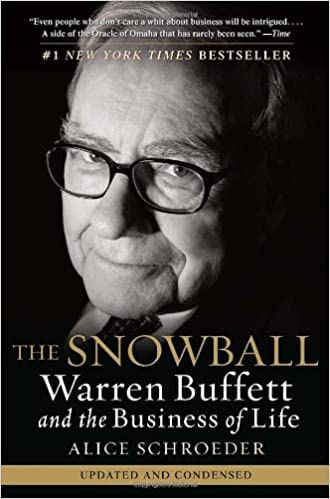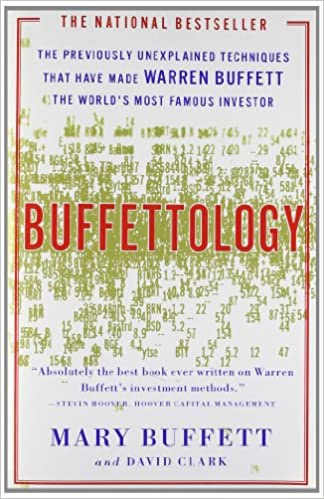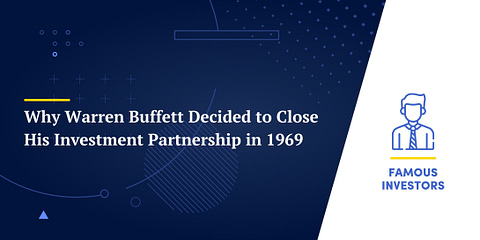Many people assume Warren Buffett’s investment strategy is a big secret–but it’s actually not a secret at all.
In fact, Buffett has included his investment criteria in the opening pages of every single Berkshire Hathaway Annual Report since 1982:
Berkshire Hathaway Acquisition Criteria
1. Large purchases (at least $75 million of pre-tax earnings unless the business will fit into one of our existing units)
2. Demonstrated consistent earning power (future projections are of no interest to us, nor are “turnaround” situations)
3. Businesses earning good returns on equity while employing little or no debt
4. Management in place (we can’t supply it)
5. Simple businesses (if there’s lots of technology, we won’t understand it)
6. An offering price (we don’t want to waste our time or that of the seller by talking, even preliminarily, about a transaction when price is unknown)
The larger the company, the greater will be our interest: We would like to make an acquisition in the $5-20 billion range.
Let it be known that Buffett is talking about private acquisitions of entire companies here. So, unless you have $5-20 billion sitting around, the above criteria probably aren’t practical to you.
But don’t worry.
As you’ll see down below, Warren Buffett and Charlie Munger say they’re also glad to simply buy small portions of great businesses through stock market investments.
🔍 Track stock picks and portfolio of Berkshire Hathaway, the holding company of Warren Buffett, to see which stocks he currently invests in: Warren Buffet Portfolio Tracker
In the 1977 Berkshire Hathaway Shareholder Letter, Buffett gives us one of our first glimpses into what he looks at when he evaluates a stock:
Warren Buffett Stock Investment Criteria
We select our marketable equity securities in much the same way we would evaluate a business for acquisition in its entirety. We want the business to be:
1. One that we can understand
2. With favorable long-term prospects
3. Operated by honest and competent people
4. Available at a very attractive price
We ordinarily make no attempt to buy equities for anticipated favorable stock price behavior in the short term. In fact, if their business experience continues to satisfy us, we welcome lower market prices of stocks we own as an opportunity to acquire even more of a good thing at a better price.
Apart from the first and last criteria of “large purchases” and “an offering price”, this is just the same list as Berkshire’s Acquisition Criteria for purchases of private companies that I presented first.
Let’s beak it down.
Warren Buffett’s 4 Principles
Indeed, these “4 Principles” as I call them are pure Buffett, and succinctly summarize some of his core beliefs inherent in many of his most popular quotes:
A business we understand: Invest within your circle of competence
What an investor needs is the ability to correctly evaluate selected businesses. Note that word “selected”: You don’t have to be an expert on every company, or even many. You only have to be able to evaluate companies within your circle of competence. The size of that circle is not very important; knowing its boundaries, however, is vital.
With favorable long-term prospects: Our favorite holding period is forever
Time is the friend of the wonderful company, the enemy of the mediocre.
Operated by able and trustworthy management: Reputation is your most important asset
It takes 20 years to build a reputation and five minutes to ruin it. If you think about that, you’ll do things differently.
Available at a very attractive price: Intrinsic value and a margin of safety
Long ago, Ben Graham taught me that ‘Price is what you pay; value is what you get.’ Whether we’re talking about socks or stocks, I like buying quality merchandise when it is marked down.
Principles #1, #3, and #4 are simple to grasp: Stick with what you know, find good & honest managers (but not ones that are solely responsible to the success of the business), pay less than the value you’re receiving.
But what about Principle #2? What does Buffett mean by “favorable long-term prospects” and how can we determine if a company meets this criterion?
The answer to this question comes down to whether the company has an enduring “moat” that will protect its “castle.” In other words, does the company have some long-term competitive edge that will allow it to continue to earn high returns on its capital?
Buffett revisits these 4 Principles in the 2007 Berkshire Hathaway Shareholder’s Letter. Even after 40 years his principles are virtually the same.
How Can You Apply Buffett’s 4 Principles to Your Own Investing?
1) Stay Within Your Circle of Competence
What industries and companies do you understand? For example, Apple, Kellogg, and John Deere have easy business models to understand and operate in relatively straightforward industries. Think you want to invest in that hot tech start-up that facilitates the creation of backward overflow synergies?
Unless you have specialized industry expertise and know what that means, or you take the time to carefully study the company and industry first, you better stay away.
2) Look for Companies with Favorable Long-Term Prospects
What is your company’s long-term competitive advantage? Does your company have a very wide and very sustainable “moat” that will protect its “castle” for years to come? Or will the company constantly have to re-dig its moat every year?
3) Evaluate Top Management for Honesty and Competence
Has the company or any of its executives been involved in fraud at any point in time? Is there “key man” (or key woman) risk? What would happen if the CEO or founder of the company left?
4) Is the Stock of the Company at Least Reasonably Priced?
What is the price of the company on the stock market and what do you think the intrinsic value of the company actually is? Is there a margin of safety, i.e. is the stock trading at a discount?
And that’s all there is to know. If you adhere Buffett’s four simple principles, they will guarantee you prosperity in your investments. If you are curious to know in more detail about value investing, you can download my free E-book.

The Ultimate Guide to Value Investing
Do you want to know how to invest like the value investing legend Warren Buffett? All you need is money to invest, a little patience—and this book. Learn more
Full of wisdom from Warren Buffett, Charlie Munger, and Benjamin Graham, it will propel you to investment success.
The Snowball: Warren Buffett and the Business of Life
BY ALICE SCHROEDER
Here is the book recounting the life and times of one of the most respected men in the world, Warren Buffett. The legendary Omaha investor has never written a memoir, but now he has allowed one writer, Alice Schroeder, unprecedented access to explore directly with him and with those closest to him his work, opinions, struggles, triumphs, follies, and wisdom. The result is the personally revealing and complete biography of the man known everywhere as “The Oracle of Omaha.”
Buffettology: The Previously Unexplained Techniques That Have Made Warren Buffett The World’s Most Famous Investor
BY MARY BUFFETT AND DAVID CLARK
Mary Buffett, former daughter-in-law of this legendary financial genius and a successful businesswoman in her own right, has teamed up with noted Buffettologist David Clark to create Buffettology, a one-of-a-kind investment guide that explains the winning strategies of the master.

























No wonder buffet turned the world on his side because of his wisdom. Hats off to the admin for sharing this valuable information. Thanks!
No wonder buffet turned the world on his side because of his wisdom. Hats off to the admin for sharing this valuable information. Thanks!
Really John, you shared a great Knowledge. It’s very useful information for me. when i read your blog & blog comments I get to know about 3 days free trial in Multi Management & Future Solutions. It’s splendid & clear my all doubts.
Really John, you shared a great Knowledge. It’s very useful information for me. when i read your blog & blog comments I get to know about 3 days free trial in Multi Management & Future Solutions. It’s splendid & clear my all doubts.
Thank you for sharing your knowledge The stock investing principles … This are helpful information for stock traders . You can also include the benefits and strategies of stock trading from Multi Management and Future solutions.
Hey there! This is my first comment here so I just wanted to give a
quick shout out and tell you I genuinely enjoy reading through your
articles. Can you suggest any other blogs/websites/forums that
go over the same topics? Thanks!
Thanks for reading!
Here are some good ones:
http://www.valuewalk.com/
http://www.oldschoolvalue.com/blog/
http://basehitinvesting.com/
http://www.oddballstocks.com/
https://www.reddit.com/r/SecurityAnalysis/
And of course all of Warren Buffett’s annual shareholder letters: http://www.berkshirehathaway.com/letters/letters.html